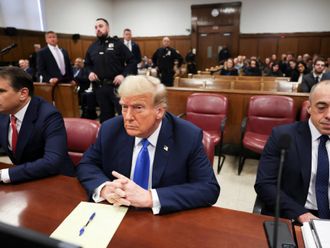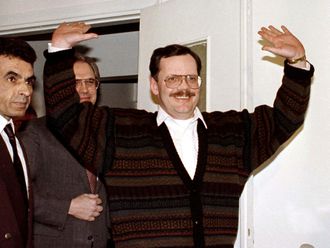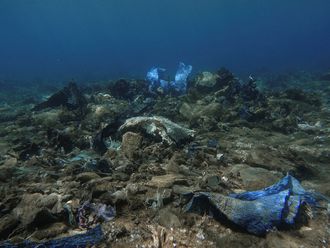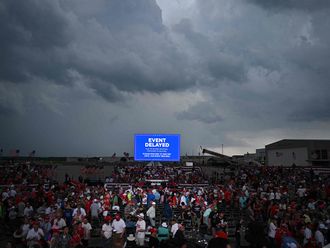Havana: Raul Castro has hailed the dramatic transformation in relations with the US as an opportunity for closer ties and a “more prosperous and sustainable socialism” in Cuba.
The Cuban president welcomed the end of more than half a century of hostility between the two countries in a televised speech broadcast on Wednesday simultaneously with Barack Obama’s address in Washington.
Castro, seated at a desk and wearing military uniform, said the breakthrough was an initiative by the US president and reflected a desire to advance mutual interests. “This decision of President Obama deserves the respect and acknowledgement of our people.”
However, he signalled that full reconciliation and normalisation would come only after the US lifted its economic embargo of the island.
“We have agreed to re-establish diplomatic relations, but this does not mean the principal issue has been resolved: the blockade, which causes much human and economic damage to our country should end.” He challenged Obama to modify the policy, which is rooted in US law, with executive action.
The 83-year-old leader said profound differences over human rights, foreign policy and national sovereignty remained, but that high-level dialogue between Havana and Washington, culminating in his hour-long phone conversation with Obama on Tuesday, showed change was possible.
“The progress attained in the interchange show it is possible to find solutions to many problems. As we have repeated we should learn the art of coexistence in a civilised manner with our differences.”
Castro urged the US, which will soon establish an embassy in Havana, to ease restrictions on travel, post and telecommunications that were imposed soon after Castro’s older brother, Fidel, led the revolution to power in 1959.
Castro, who has introduced economic reforms, but retained tight political control, said Cubans had stayed loyal to the revolution and its social justice ideals despite numerous challenges and would continue to do so. “We carry forward, given the difficulties, with the actualisation of our economic model to build a prosperous and sustainable socialism.”
The ten-minute address, recorded in a wood-panelled office with black-and-white portraits of nationalist heroes, captured a historic moment but was still classic Raul: brief, dry, and short on ceremony.
He announced the release of Alan Gross, a US contractor jailed for espionage, on humanitarian grounds, as well as a Cuban spy who worked for the US.
The former defence minister welcomed the release of Gerardo Hernandez, Antonio Guerrero and Ramon Labanino — three Cuban intelligence agents held in the US — and recalled a promise from Fidel that they would return. It was the only mention of his sibling, who retired in 2008 in poor health and remains largely out of the public eye.
Castro thanked Canada and the Vatican, singling out Pope Francis, for facilitating talks conducted in secret over the past 18 months.
The president expressed hope for continued thawing in relations and reiterated a desire to join the United Nations.
“We propose to the US government to adopt mutual measures to improve the bilateral climate and advance the normalisation of links between our countries.”
Raul shook hands with Obama at Nelson Mandela’s funeral last year and signalled a desire for rapprochement, possibly with a view to his own legacy.
The socialist leader has advocated a two-term limit for all Cuban government positions including the presidency, fuelling speculation he will step down when his current term ends in 2018, when he will be 86.












